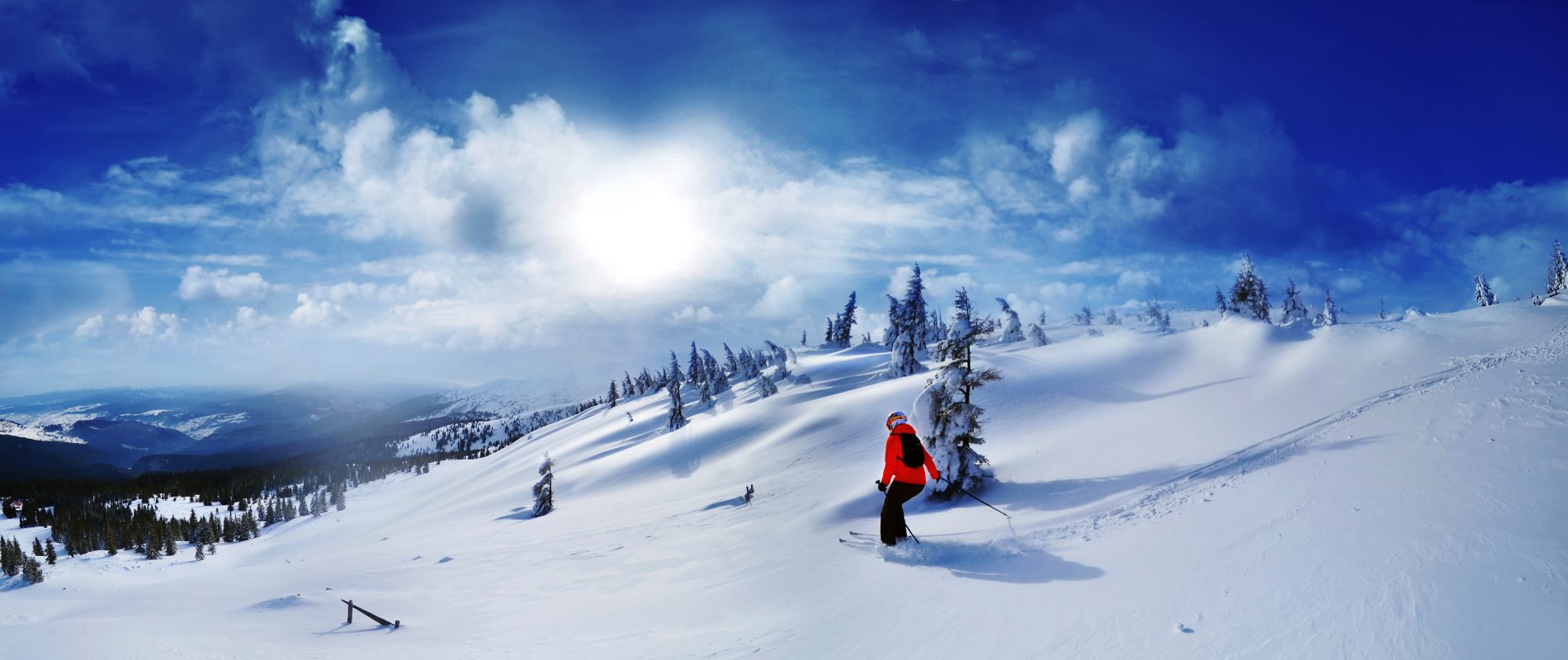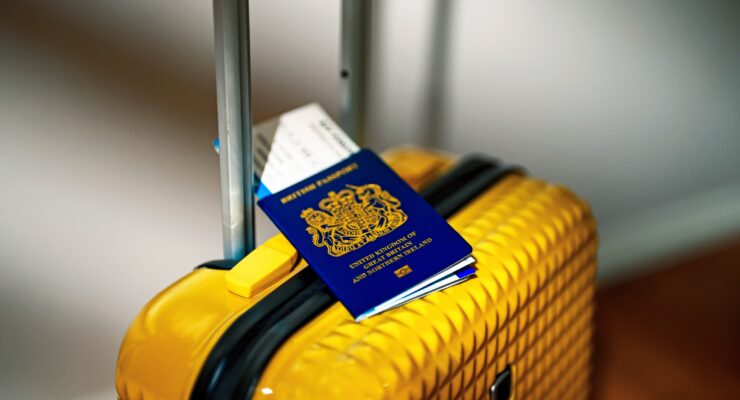Working Holiday Visa (WHV) holders are often interested in working in one of the many French ski resorts, where seasonal employees are often needed in winter. Good idea—many resorts in the French Alps and the Pyrenees have jobs for seasonal workers, especially in the service industry (food and beverage services, hospitality). If you have relevant experience and are ready to work long hours, you could find great opportunities. Perks of the job: living in scenic resort and enjoying winter activities on your days off!
Where do I find these ski resorts?
There are over 200 ski resorts in France (here is a partial list). The biggest ones are in the French Alps, with both lower- and high-altitude resorts. There are also many ski resorts in the Pyrenees, the Massif Central, the Jura Mountains (north of the Western Alps) and the Vosges Mountains (Eastern France).
Each ski resort has its own atmosphere. The hiring processes, management style and average wages may be completely different from one place to the next, whether you’re in a luxury resort with five-star hotels and restaurants or in a budget, family-oriented resort with eateries and short-term rentals.
Generally speaking, lower-altitude resorts get less snow and have shorter seasons, so there are also fewer job opportunities and wages tend to be on the lower side. There are a few exceptions, like world-renowned and fancy Megève and St Gervais resorts. Higher-altitude resorts and very large resorts may offer higher wages and finding a job could be easier too.
Who is a good fit for ski resort jobs?
Typically, WHV holders who want to work in a ski resort:
- enjoy mountains scenery and love practising winter sports
- live by the “work hard and play hard” motto (nightlife in resorts can be intense!)
- hope to add a unique work experience to their resume
On the other hand, if you don’t like the cold temperatures, secluded areas (although some resorts do feel like cities!), flexible work schedules (depending on both unpredictable weather conditions and tourist influx) and parties with other short-term workers, then a ski resort job may not be a great fit.
Still interested? Investigate further to see if your plan could work. Before you start job hunting and before accepting an offer, get answers to the following questions.
Is accommodation provided for staff? If not, how much does it cost to live on site? Be careful—accommodation can be scarce and expensive. A small apartment can be over €500 a month. Are utilities included? If not, is the place insulated? Watch for high heating bills!
What’s the cost of living? In a luxury ski resort, your average pizza can be €30, and good luck filling the fridge on a budget. You may end up spending more than you make, which is probably not your goal. Note that a few ski resorts do offer staff members a discount card you can use to shop locally.
Do you need a car? Getting there at the beginning of your contract and leaving at the end shouldn’t be a major issue, but can you spend the season on site without your own vehicle? Are you going to be “stuck” without a car? Is there a bus service to and from the station to go visit other towns on your days off or to go shop where it’s a bit cheaper?
Does your employer offer perks? Free accommodation, ski passes, a percentage of the tips, bonuses, free food, etc.?
Do you have a pet? If you bring it along, can it stay with you if your employer provides free accommodation?
What kind of jobs do ski resorts offer?
Ski resorts need to fill many different kinds of positions. However, as a WHV holder, note that a regulated occupation probably won’t be an option, unless you take time to meet all the requirements, including getting necessary certifications. For instance, to work as a ski instructor, you need French training and qualifications. Mountain guides, first-aid ski patrol medics and ski-lift operators are also regulated occupations.
Tourism info centres could offer job opportunities if you have relevant training and experience in tourism and if you speak several foreign languages (Russian could be an asset!). However, locals are often preferred because they know the area well. If you see a job ad, you can still legally apply to work in a tourist info centre, such occupations aren’t regulated.
- Generally speaking, WHV holders have better chances of getting hired in one of the three following job categories (check out this YouTube channel, in French, to know more about these jobs):
Hospitality/food and beverage services: unsurprisingly, given the number of restaurants and hotel in ski resorts, housekeepers, front desk employees, cooks, waitstaff, dishwashers, etc., are always needed. Hourly wage depends on the position. At the lower end, you’ll get minimum wage, €9.76 per hour. Expect long hours and a rewarding work experience! - Daycare centres and holiday camps: you could take care of babies and toddlers or lead activities with teenagers and adults.
- Retail sector: resorts are like mini-cities with many traditional shops (bakeries, mini-markets) and winter-sports shops selling or renting equipment. Speaking a foreign language is always an asset and it’s not required to be a ski or snowboard specialist—you’ll learn fast enough!
What are the pros and cons of working in a ski resort?
The pros
- With some money management skills and maybe a few bonuses from your employer, you could save enough to go travelling at the end of your contract.
- Working in this unique environment is a way to enjoy an amazing scenery and gain first-hand experience of French mountain culture. Ever heard of “raclette”? It’s half a wheel of cheese, melted slowly in a large pot then served on boiled potatoes with deli meat!
- You’ll get to know many people in the tightly knit season-worker community. It’s both a chance to practise French and make friends.
- You could learn to ski or practise other winter sports.
- Money can be good.
The cons
- Mountain life isn’t easy. It can feel secluded and beware of adverse weather conditions!
- Cost of living is high in most ski resorts.
- Don’t expect a good work/life balance during the busy season. Workdays can be long and exhausting.
- You have to commit to live for three to five months in the same resort.
Where do I find a ski resort job?
Most mountain towns live off tourism. The nearest resort is often the main employer around, so locals are often preferred in the hiring process. This will be the biggest challenge in your job hunt.
If you have experience working in high-end hotels, consider heading to a luxury ski resort. Those without such experience have much lower chances of getting hired by five-star hotels and the best restaurants.
Start your job search by selecting resorts that best fit your work experience and lifestyle—small or large resort, family-oriented or world-class resort, etc. Then, check out each resort’s website. Most have an “offres d’emploi” section listing current opportunities. You can also contact the city hall or the tourist info centre for more information. You could also ask if the resort has ever hired WHV holders in the past. Explain you’re a foreign worker with a valid long-term visa and that your future employer doesn’t have to sponsor you or go through any red tape (there are a few extra steps if you’re from Russia, though).
Focus on highlighting your international experiences, your knowledge of the tourism industry and your language skills. Note that you must speak conversational French for customer-facing positions.
Drop off resumes in person or send them by email. And don’t forget to tailor your resume and cover letter to the position and the employer—it’s the best way to end up on top of the pile!
What’s the best time to apply for a ski resort job?
Make a list of ski resorts you’re interested in as soon as possible. Generally speaking, most job offers are posted and filled in September and October for five-month contracts maximum between December and April.
Towards the end of the summer, there are also job fairs in main cities close to the Alps and The Pyrenees, often hosted by the Bureaux et Points Information Jeunesse (BIJ and PIJ).
There is a second hiring season for summer jobs, usually in May. Summer contracts are usually two months maximum for July and August and there are much fewer job opportunities than in winter.
Useful links to find a job and network
Here is a map listing some of the main French ski resorts and their website.
You can also check out the following resources:
- Ressources for Auvergne Rhônes-Alpes region
- Work opportunities in The Pyrenees: n-py.com et ppmm64.org
- Networking association: réseau social d’entraide des saisonniers dans la région des Pyrénées
- Saisonnalité.org
- Saisonnier.fr
- monjobalamontagne.com
- jobmontagne.fr
- emploi-montagne.com
Seasonal employment contract
Hospitality and food and service industry jobs typically offer workers a seasonal employment contract (“contrat saisonnier”) instead of a fixed-term contract, the popular “contrat à durée déterminée” (or “CDD”) you may get working in retail. At the end of a CDD, you get a “prime de précarité,” a bonus equals to 10% of your gross salary. A “contrat saisonnier” offers different perks, including paid overtime and more work hours, which should be listed in your contract.
Learn about the contract you’re signing and review it thoroughly as it’s a very important document in French labour law.
You can learn more about the rights and duties of both the employer and employee under the “contrat saisonnier” on this fact sheet from the DIRECCTE du Rhône-Alpes (PDF): Le contrat saisonnier.
















 Français
Français English
English




0 comments
{{like.username}}
Loading...
Load more